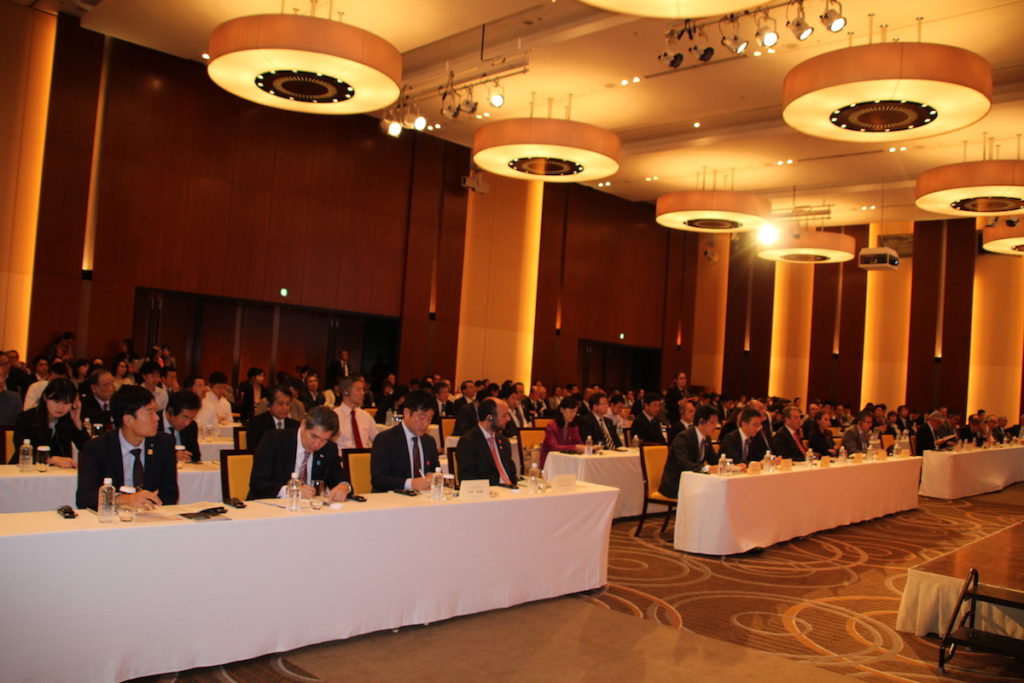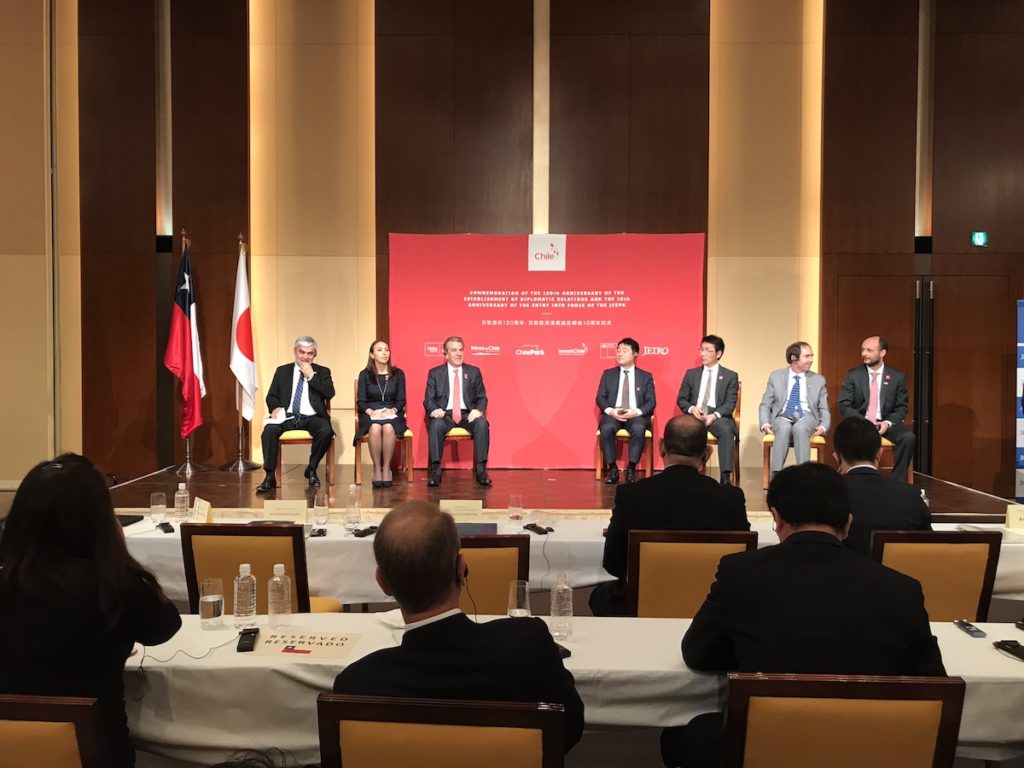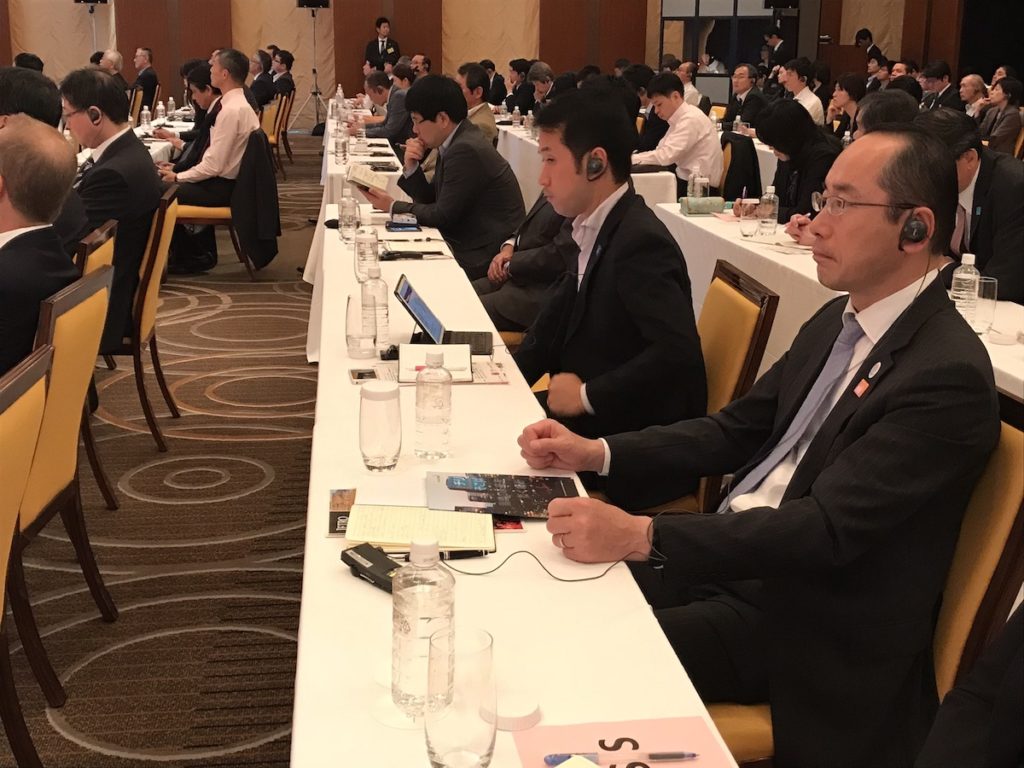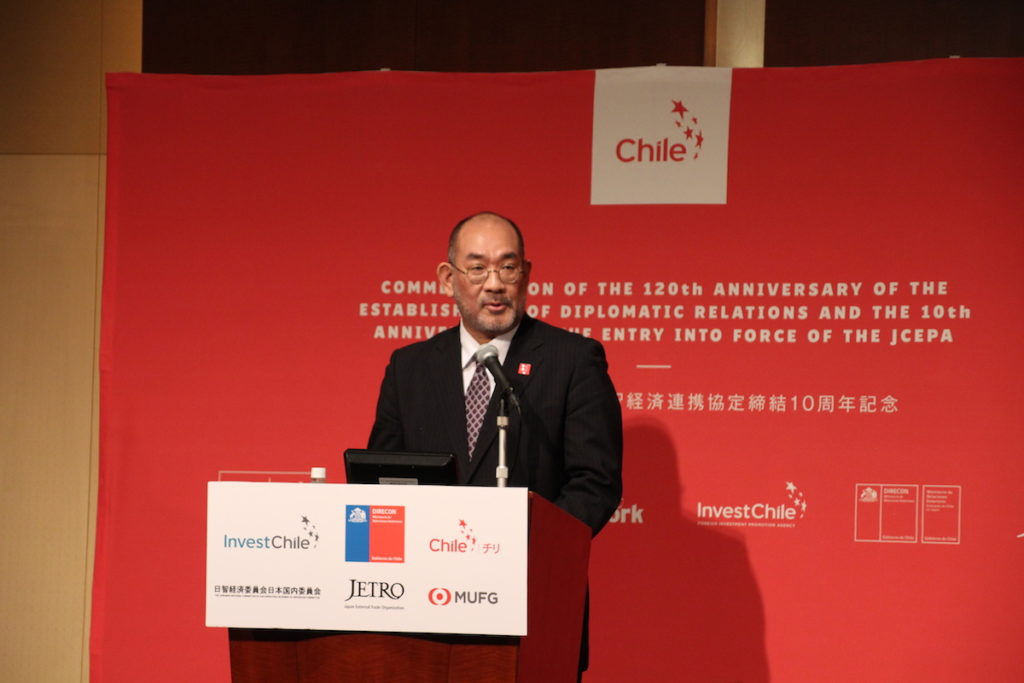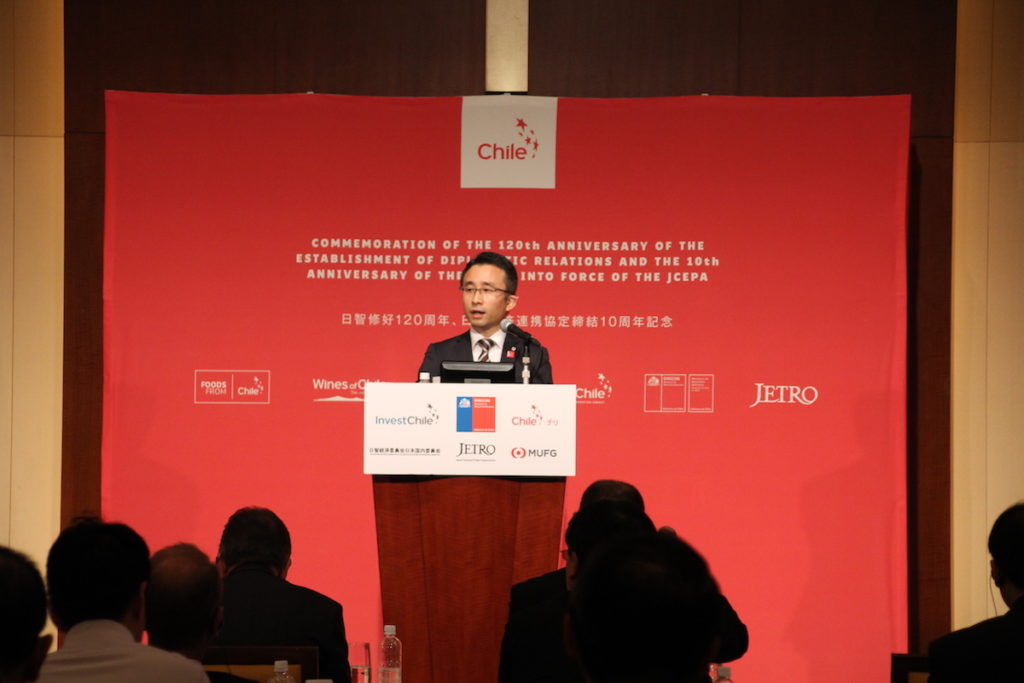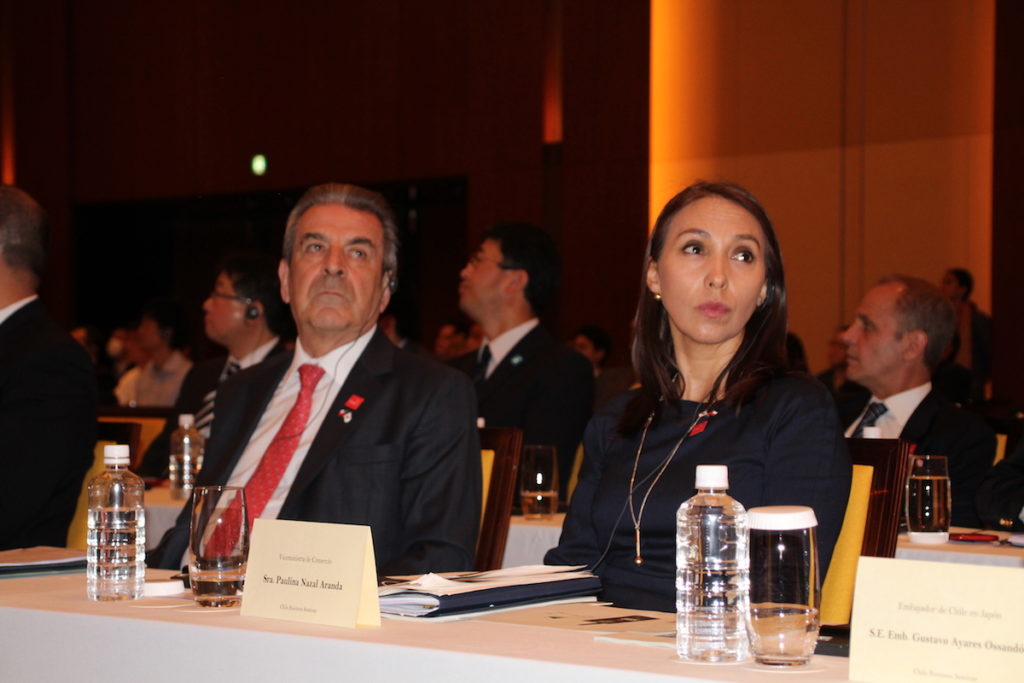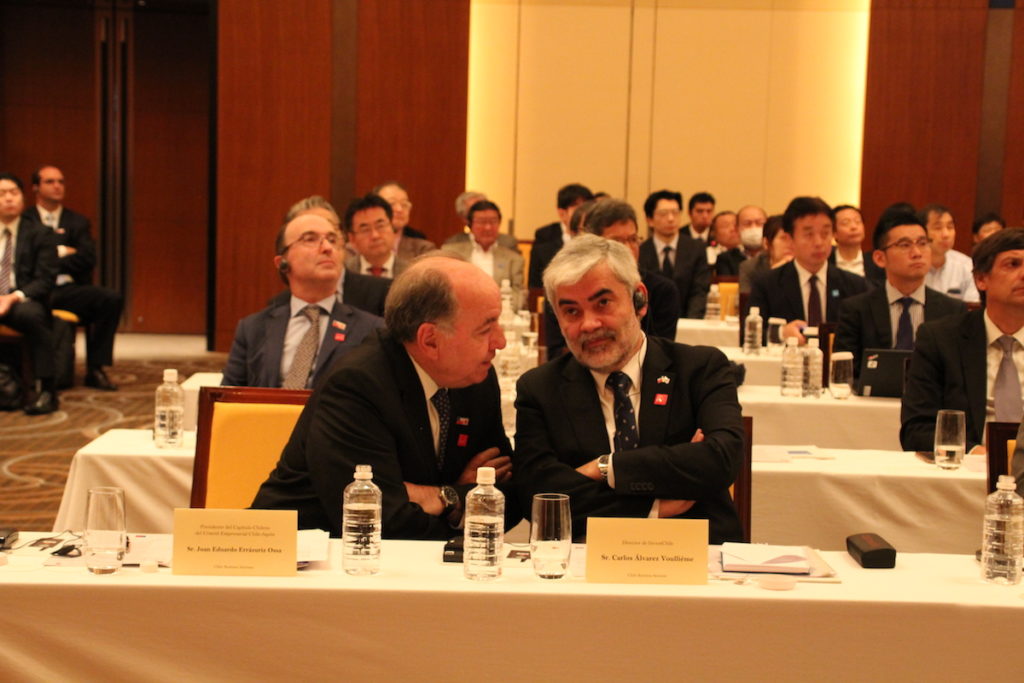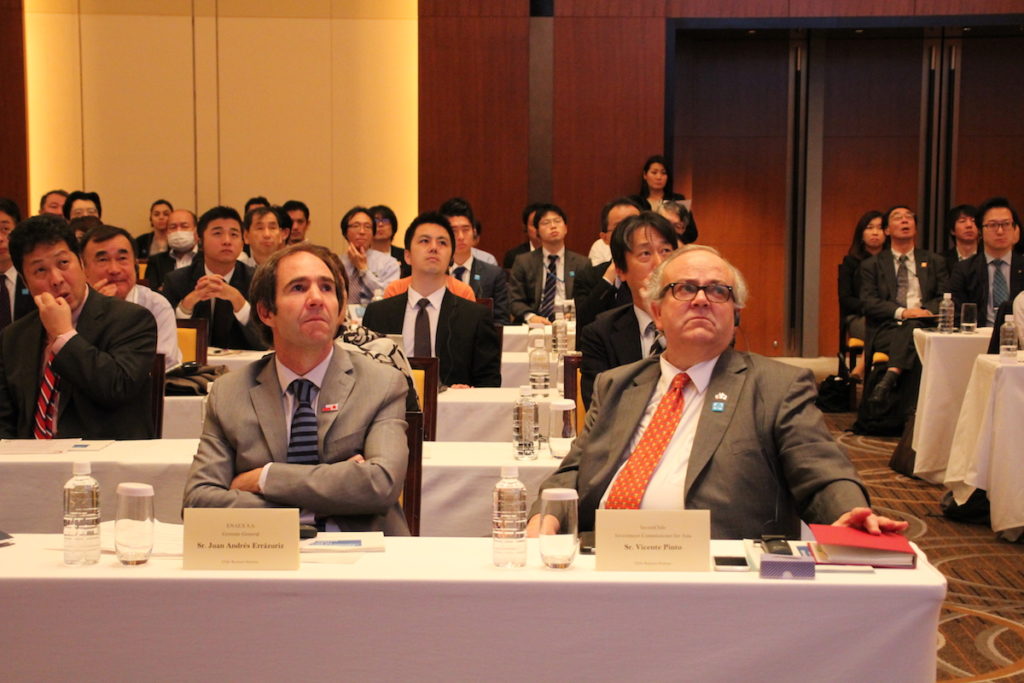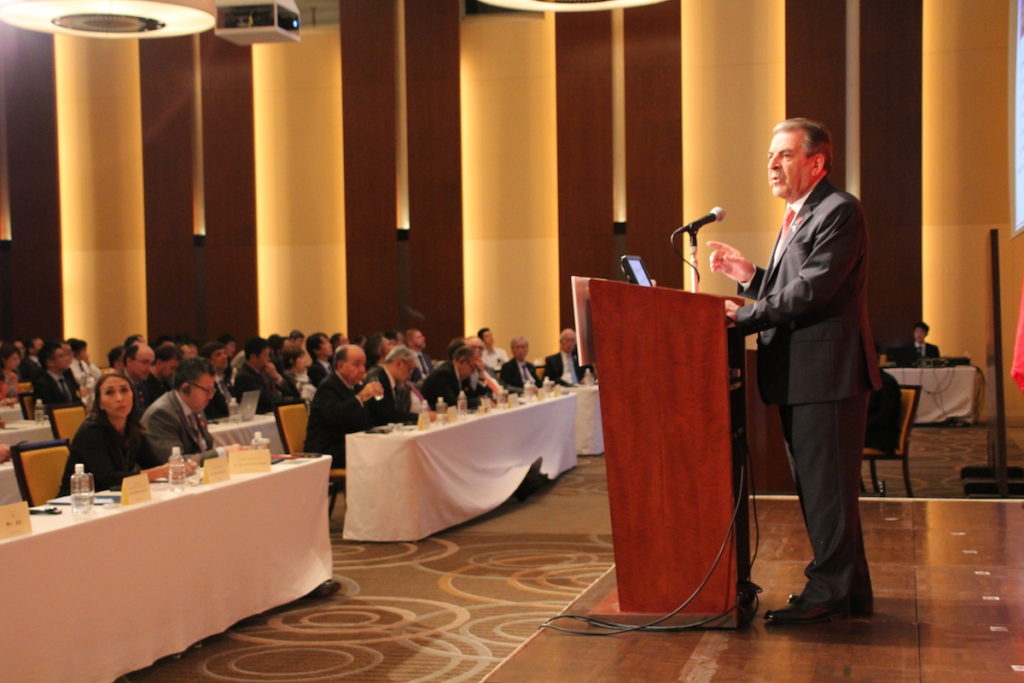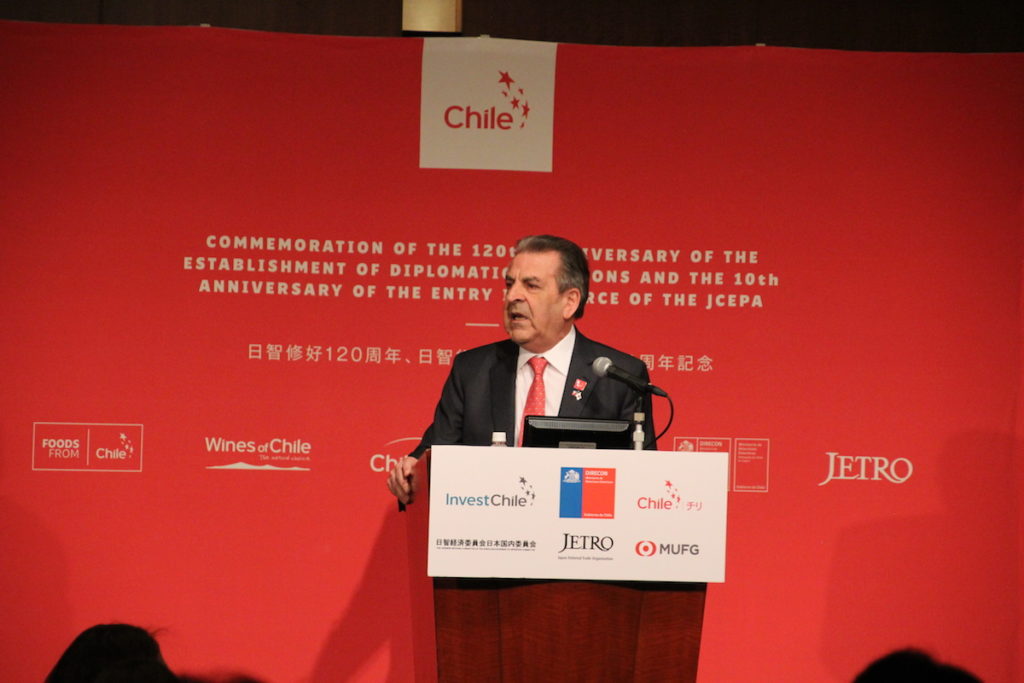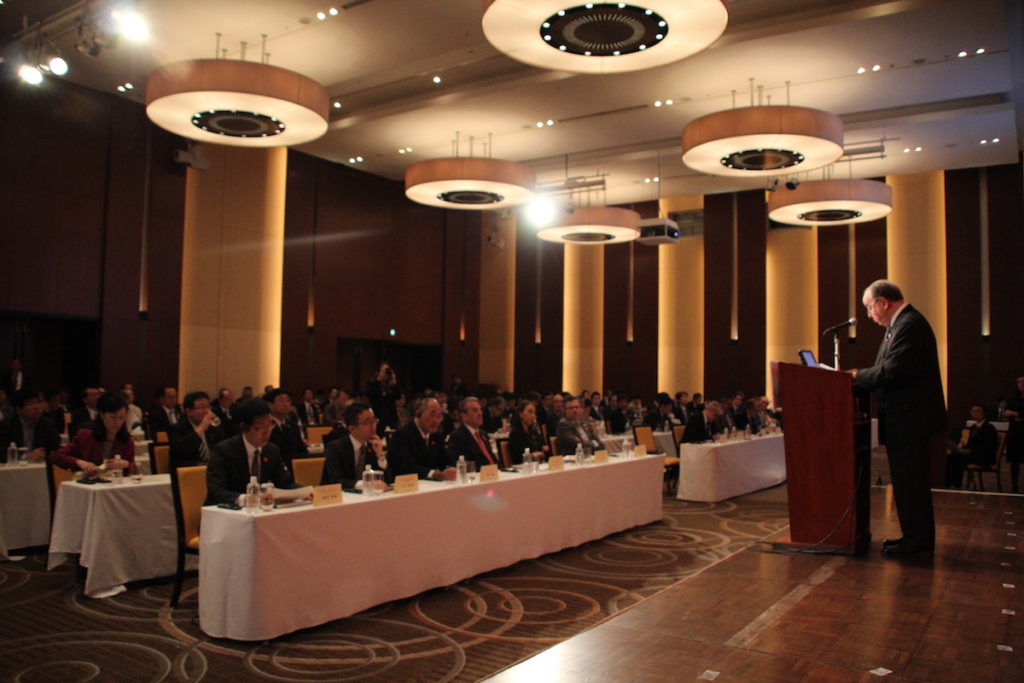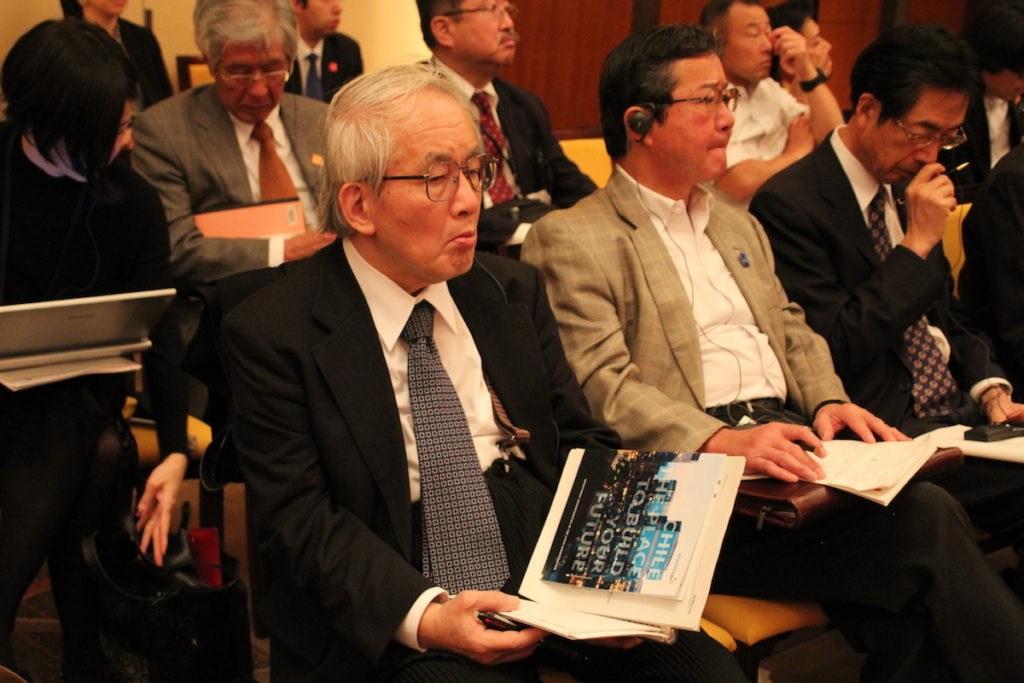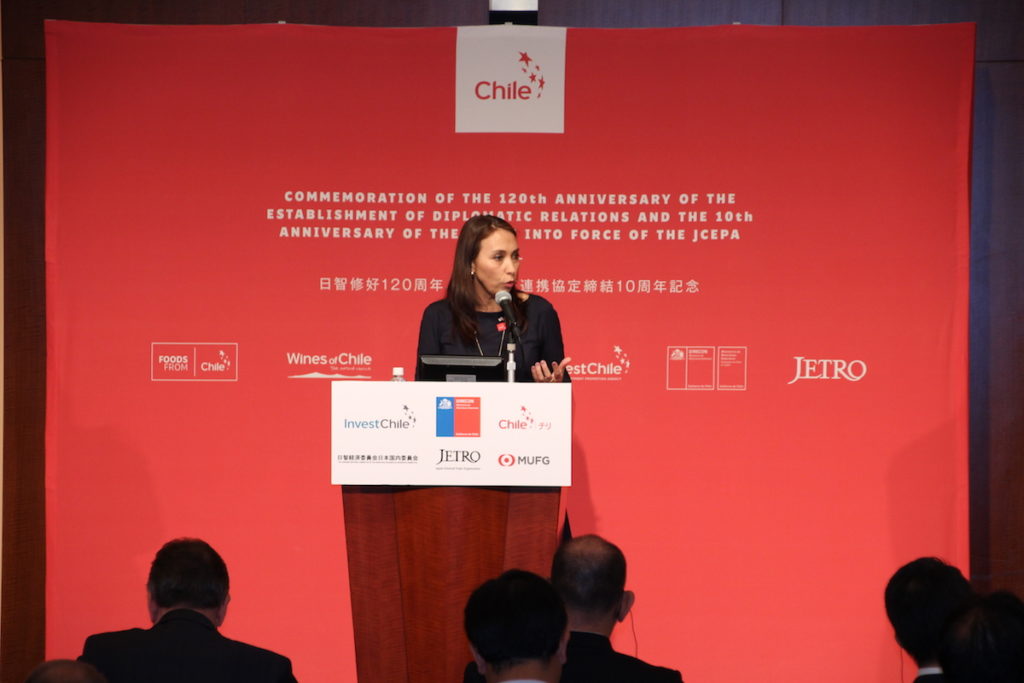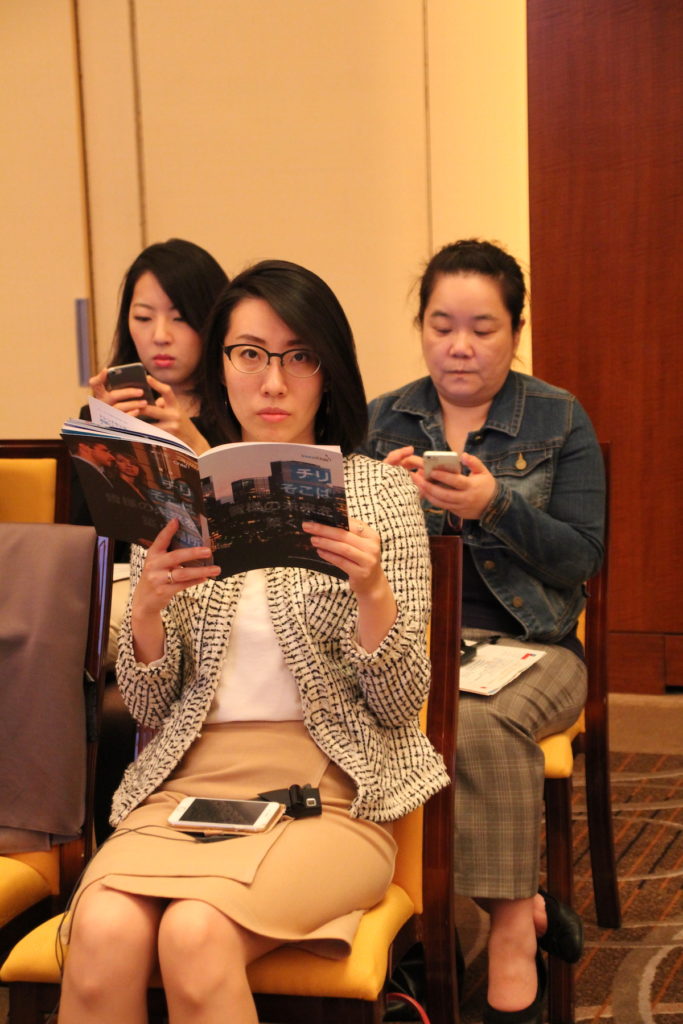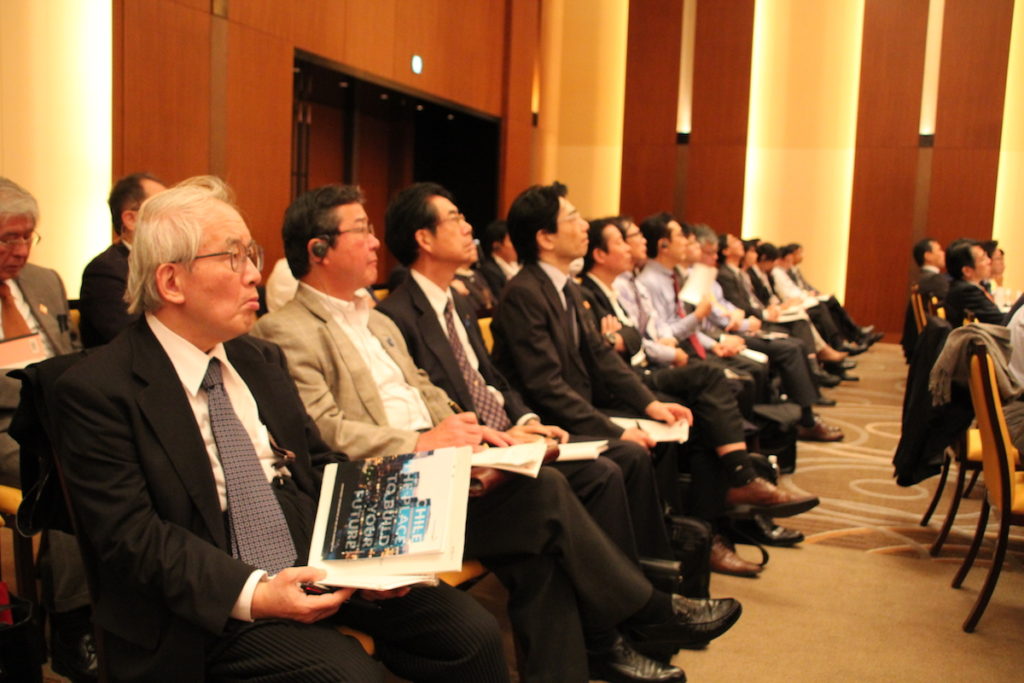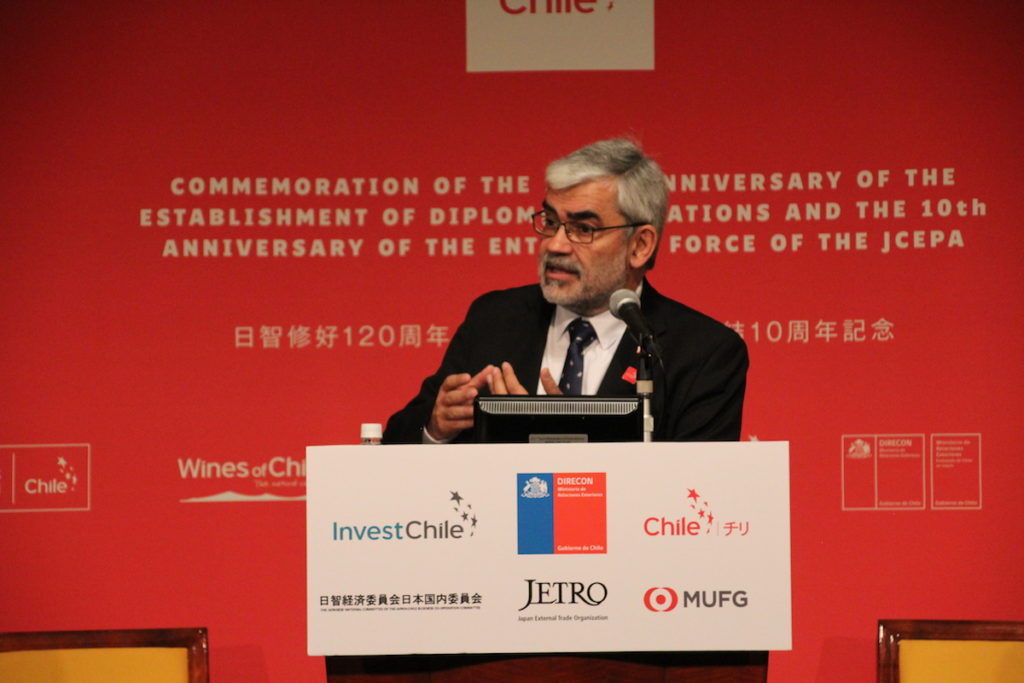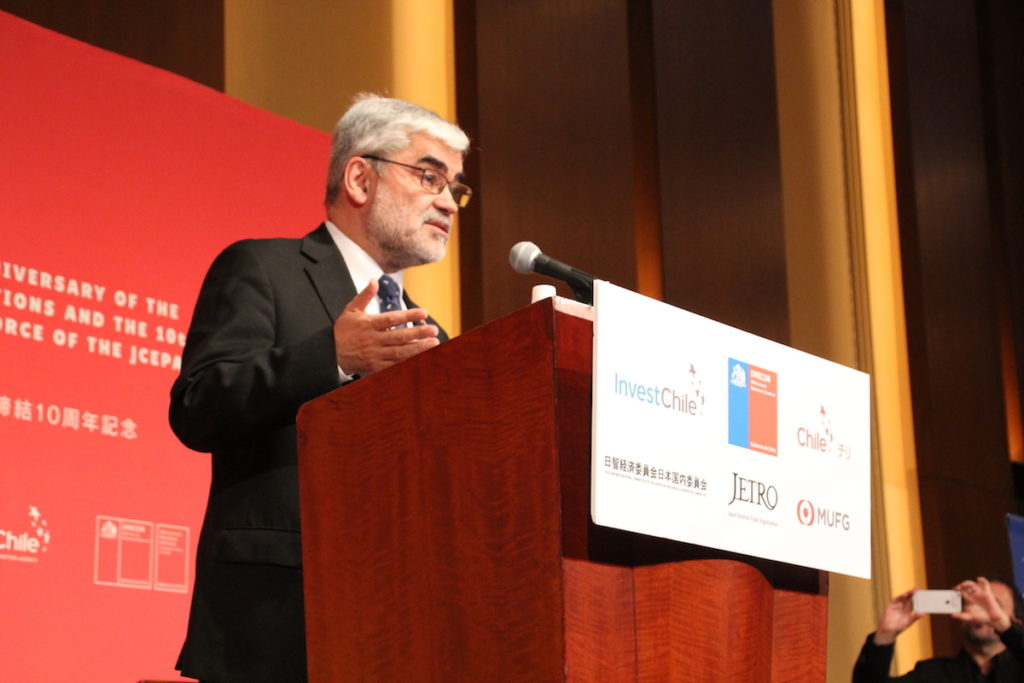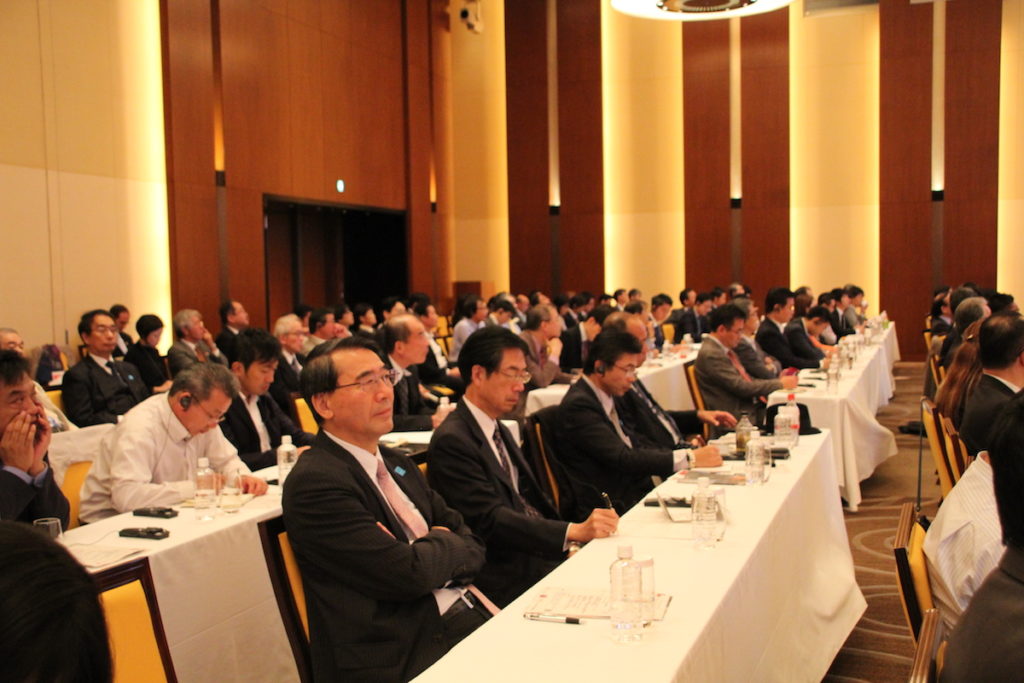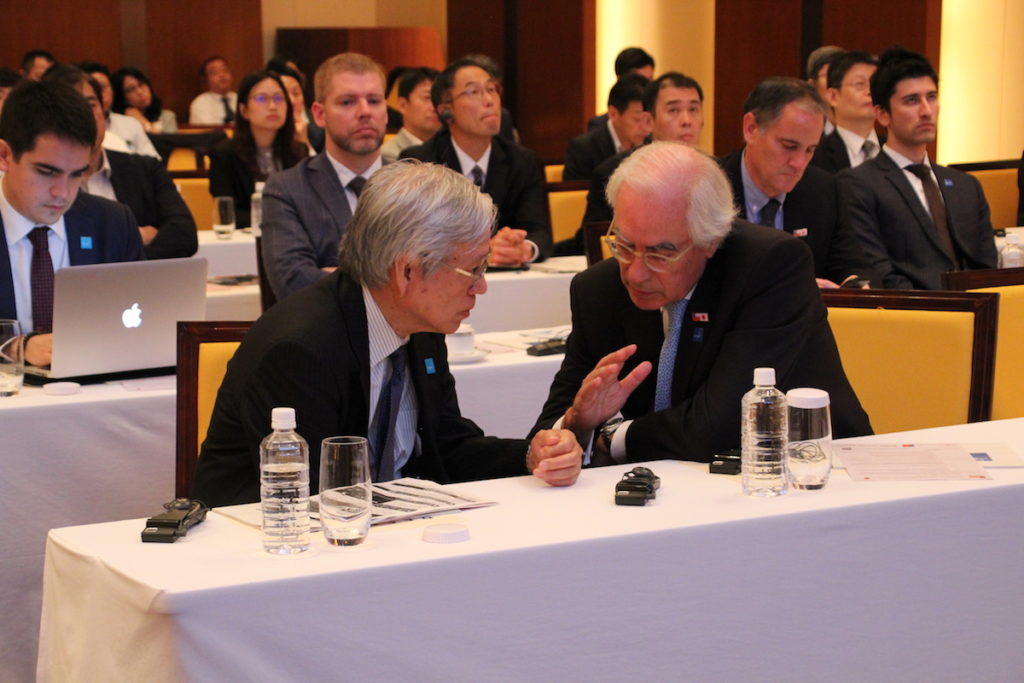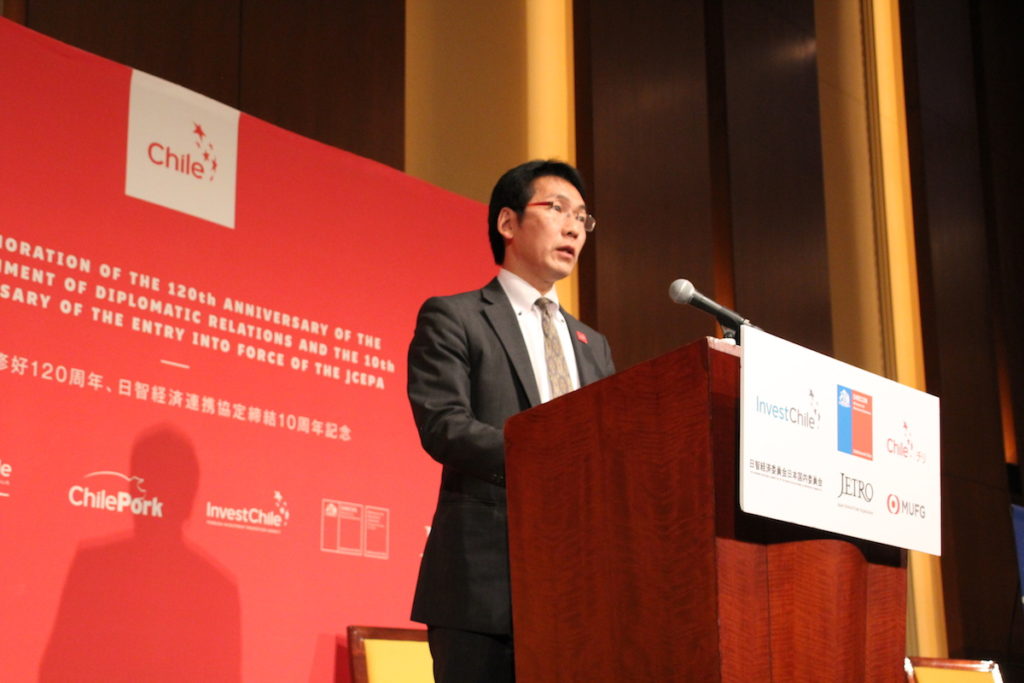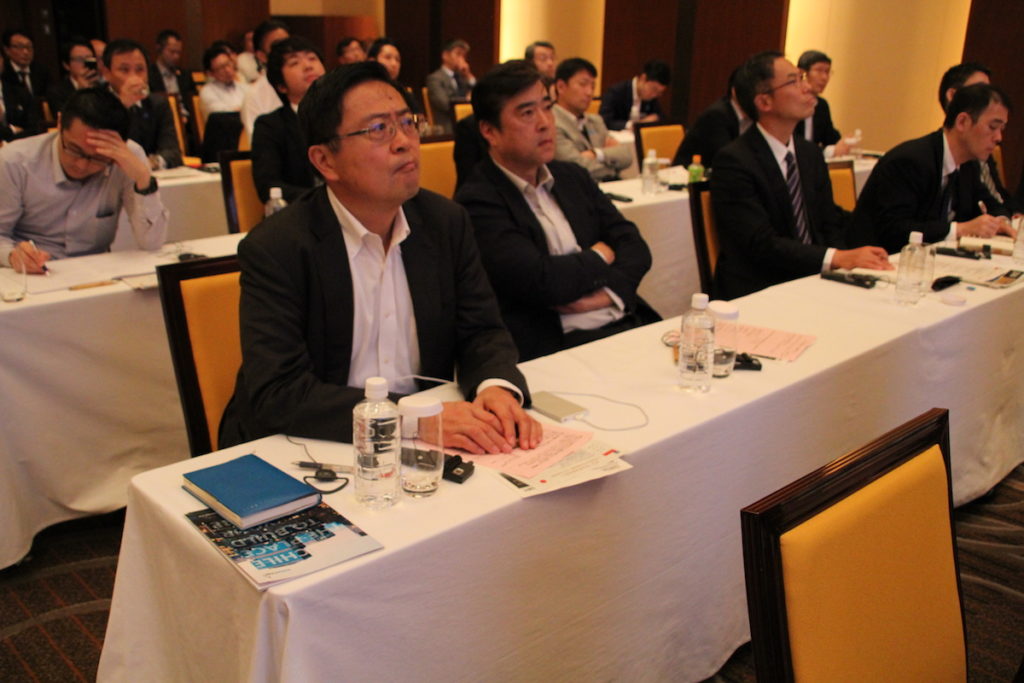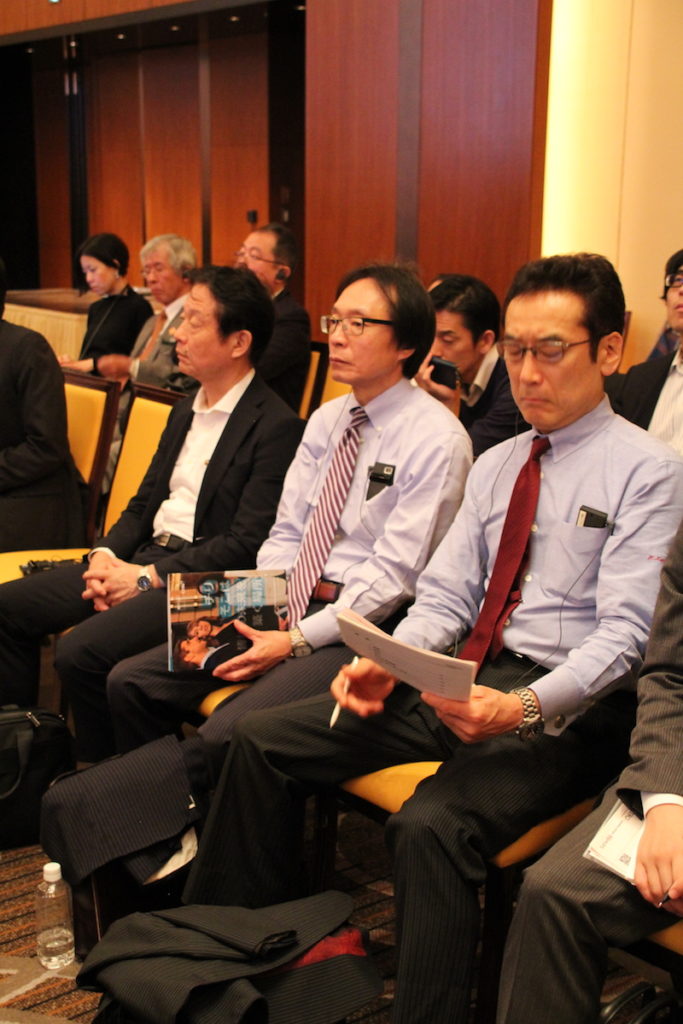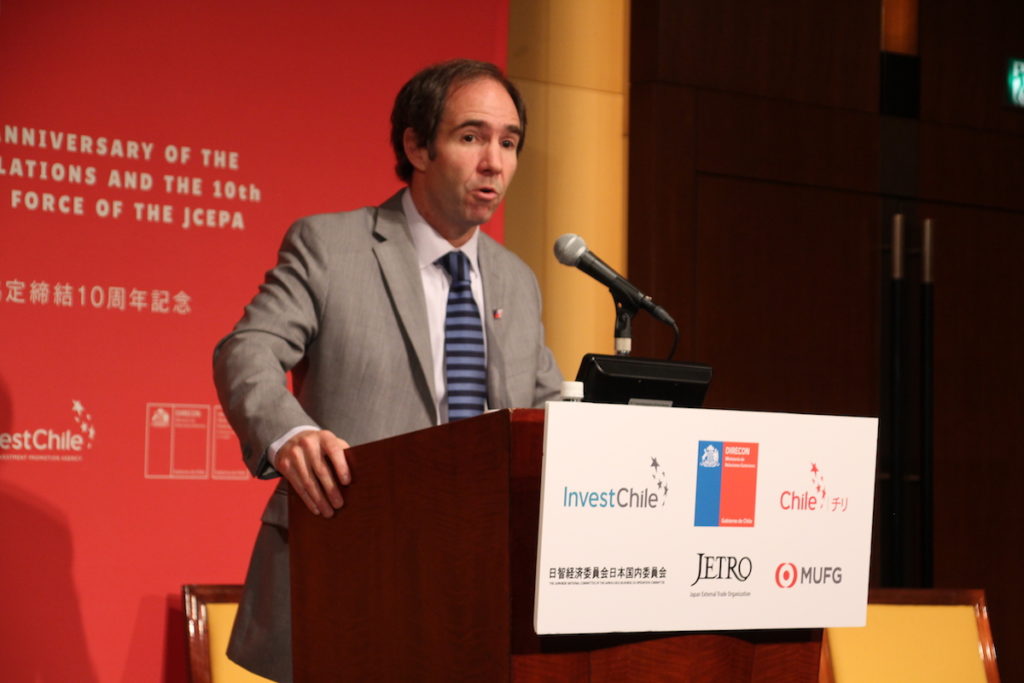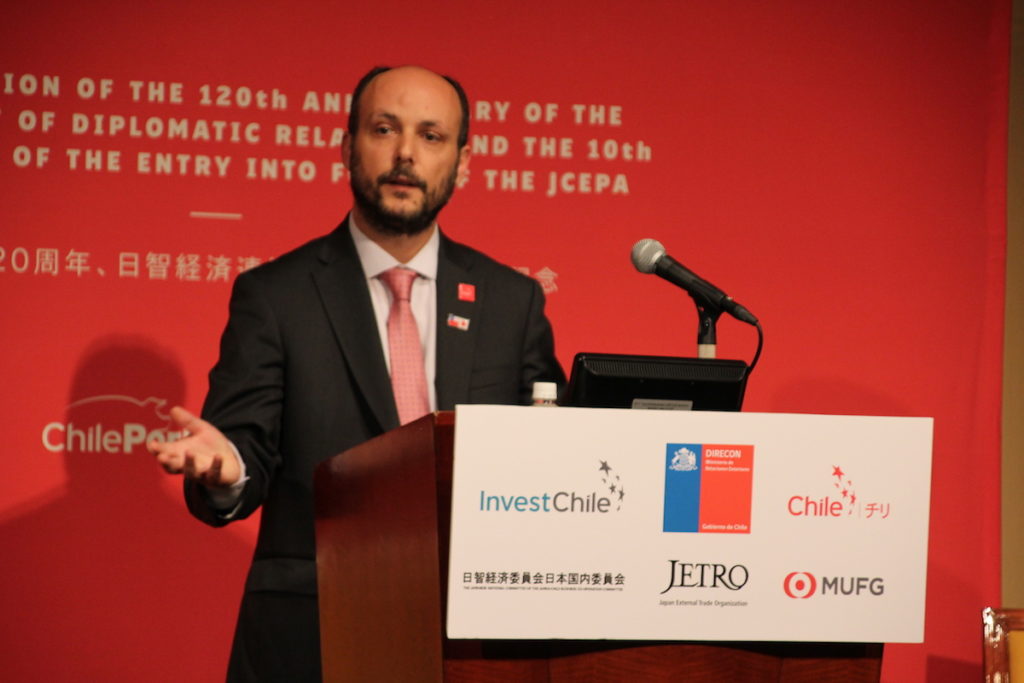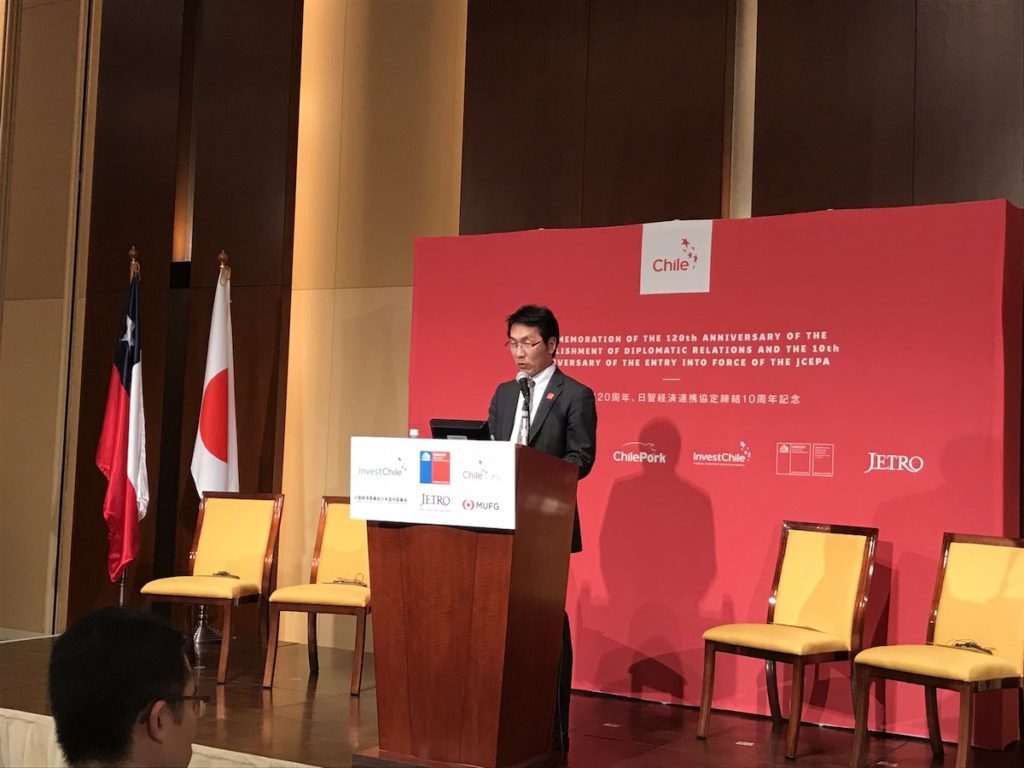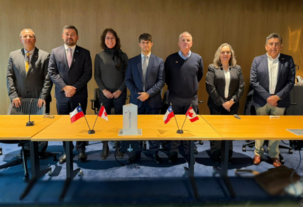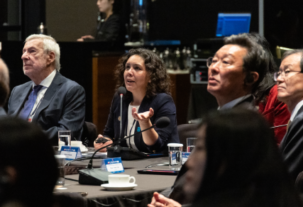
Essential information

Official visit to Japan includes celebration of 120 years of diplomatic relations and opening of Investment Promotion Office
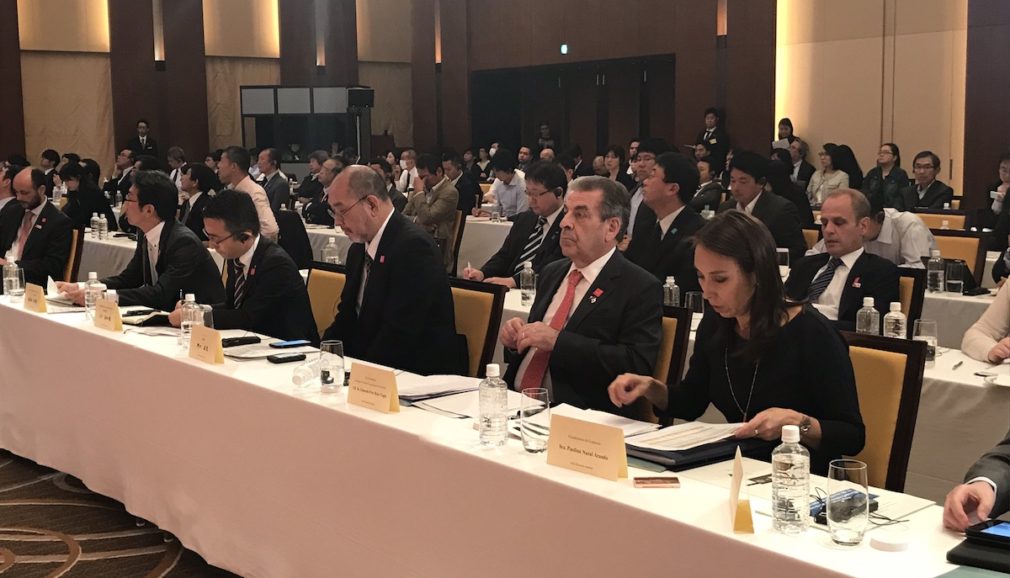
Japanese companies and authorities drew attention to Chile’s openness, reliability and economic and political stability.
Some 300 potential investors and businesspeople gathered on Tuesday in Japan’s Conrad Tokyo Hotel for the Chile Business Seminar. The event, organized jointly by JETRO, ProChile, DIRECON and InvestChile, was chaired by Chile’s ambassador for Asia-Pacific, former President Eduardo Frei, and speakers included Chilean and Japanese authorities as well as representatives of companies from both countries.
The seminar formed part of an official visit to mark the 120th anniversary of diplomatic relations between Chile and Japan and the 10th anniversary of their Association Agreement. The activities also included the opening of InvestChile’s first Investment Promotion Office in Asia.
“Chile is a country with a stable business climate where Japanese companies can do business safely,” pointed out Naoyoshi Noguchi, executive vice-president of the Japan External Trade Organization (JETRO). He also underscored the importance of the treaties in force, indicating that they are used by 80% of the Japanese companies with operations in Chile.
Ken Kobayashi of the Japan-Chile Business Committee highlighted the maturity of the bilateral trade relations. “Chile is the Latin American country that promotes free trade,” he said.
Former President Frei spoke about the great contribution that Japanese companies make in Chile where they have an important place not only in mining but also in the other key sectors of the economy. He also noted that many of them have had operations in Chile for decades now.
Trust and cooperation
“Chile has been a great trade partner for Chile and will continue to be so in the future; it is also particularly friendly towards foreign investment,” said the director of InvestChile, Carlos Álvarez, who also took the opportunity to speak about the opening of Chile’s Investment Promotion Office in Tokyo, its first in Asia.
He explained that InvestChile’s mission is “to accompany overseas companies that are looking to start operations in Chile. We accompany them in their landing and start-up processes and, once they are established, assist them in identifying and resolving difficulties since we want them to continue to grow.”
“All these services will now be available in Tokyo, thanks to the opening of our new office, which will work in coordination with the office of ProChile and the Chilean Embassy here,” he added.
Japan is Chile’s principal source of Asian investment and accounted for an inflow of US$5,717 million between 2009 and 2015, equivalent to some 4% of total foreign direct investment in Chile during that period.
Paulina Nazal, director general of Chile’s Directorate of International Economic Relations (DIRECON), pointed out that “cooperation between Chile and Japan is not only commercial but also extends to education, science, the environment, astronomy and response to natural disasters.” She added that the two countries share their leadership of the integration of their respective regions through a number of agreements and alliances for the promotion of openness to trade.
Long-term relations
Kojiro Takeshita, director of JETRO’s Americas Division, talked about the organization’s study of Japanese companies in Chile, which found that 45.9% of them are willing to increase their investment there.
“Chile is viewed not only as a place for production or a logistics point but also as a center for services,” he explained. As regards challenges, he indicated that Chile needs to improve the availability of labor and suppliers for certain industries. However, he also noted that that the two countries’ double taxation avoidance agreement, which came into force last year, has significantly increased the expectations of Japanese companies. “The impact of the agreement has been important,” he insisted.
As regards the factors that prompt Japanese companies to establish operations in Chile, the executive mentioned the business climate and the market’s willingness to try new products. He also emphasized the country’s transparency, its trade agreements and the low level of labor conflicts.
He noted that “the Japanese companies that invested in Chile in the 1990s have already recovered their capital,” adding that “we can find new business opportunities in Chile in the development of new markets.”
Atushi Kyamoto, general manager of the Bank of Tokyo-Mitsubishi in Santiago, which has been in the country for almost 40 years, indicated that “Chile is a long way away and is a small market which, if misunderstood, can discourage investment.” As a result, he urged Japanese investors to learn about the reality of Chile and its position compared to other Latin America countries.
“Chile offers comparative advantages for the development of business at the international level. It is a stable country, with very low risk, and it is very competitive and a mature economy. Institutionally, the system is very well established,” he concluded.
Visit the website of our office in Asia www.investchile.gob.cl/japan
…




